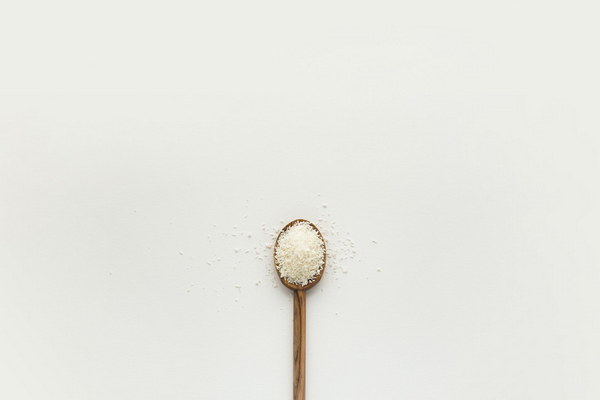Easing Gastric Pain Effective Tips for Nurturing a Healthy Stomach
Gastric pain can be an uncomfortable and sometimes distressing experience. Whether it's a one-off occurrence or a recurring issue, taking proper care of your stomach is essential. In this article, we will explore practical tips and lifestyle adjustments that can help you nurture a healthy stomach and alleviate the discomfort caused by gastric pain.
1. Maintain a Balanced Diet
One of the most effective ways to prevent and manage gastric pain is to adopt a balanced diet. Here are some key points to consider:
a. Eat small, frequent meals: Eating smaller meals throughout the day can help prevent overeating and reduce the strain on your stomach.
b. Choose fiber-rich foods: Foods high in fiber, such as fruits, vegetables, and whole grains, can promote healthy digestion and reduce the risk of constipation, which can exacerbate stomach pain.
c. Avoid trigger foods: Common trigger foods for gastric pain include spicy, acidic, and fatty foods. Identify your personal triggers and minimize their intake or eliminate them from your diet.

d. Stay hydrated: Drinking plenty of water can help prevent dehydration and promote healthy digestion.
2. Manage Stress
Chronic stress can have a significant impact on your stomach health. Here are some strategies to help you manage stress:
a. Practice relaxation techniques: Techniques such as deep breathing, meditation, and progressive muscle relaxation can help reduce stress levels.
b. Exercise regularly: Regular physical activity can improve your mood, reduce stress, and promote overall well-being.
c. Get adequate sleep: Lack of sleep can increase stress levels and affect your stomach health. Aim for 7-9 hours of quality sleep each night.
3. Avoid Smoking and Limit Alcohol Consumption
Smoking and excessive alcohol consumption can irritate the stomach lining and exacerbate gastric pain. If you're a smoker, consider seeking help to quit, and try to limit your alcohol intake.
4. Practice Good Hygiene
Poor hygiene can lead to gastrointestinal infections that cause stomach pain. Here are some tips to maintain good hygiene:
a. Wash your hands before eating and after using the bathroom.
b. Cook your food thoroughly to kill any harmful bacteria.
c. Keep your kitchen clean and sanitized.
5. Identify and Treat Underlying Conditions
If you experience persistent gastric pain, it's essential to identify and treat any underlying conditions. Common causes of gastric pain include:
a. Gastroesophageal Reflux Disease (GERD): This condition occurs when stomach acid flows back into the esophagus, causing pain and discomfort.
b. Peptic Ulcers: These are open sores that develop on the lining of the stomach or the first part of the small intestine.
c. Inflammation of the stomach lining (Gastritis): This condition can be caused by various factors, including infection, stress, and certain medications.
Consult with a healthcare professional to determine the cause of your gastric pain and receive appropriate treatment.
6. Use Over-the-Counter Remedies
If you experience occasional gastric pain, over-the-counter remedies can help alleviate symptoms. However, always consult with a healthcare professional before taking any medication, especially if you have pre-existing health conditions or are pregnant.
a. Antacids: These can neutralize stomach acid and provide temporary relief from pain.
b. Proton Pump Inhibitors (PPIs): These medications reduce the production of stomach acid, which can help alleviate symptoms of GERD.
In conclusion, nurturing a healthy stomach and alleviating gastric pain involves a combination of dietary changes, stress management, and addressing underlying health conditions. By following these tips and seeking professional advice when needed, you can improve your stomach health and enjoy a more comfortable life.









